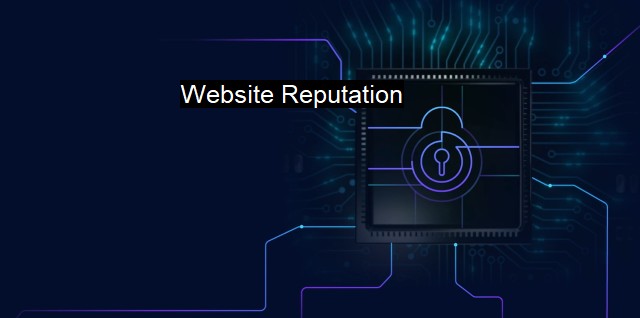What is Website Reputation?
Importance of Website Reputation in Cybersecurity and Antivirus Protection
Website Reputation refers to the perceived credibility, reliability, and safety associated with a website, as determined from different online sources and mechanisms. A website's reputation is crucial as it not only affects the degree of trust that users place on it but at the same time, determines its safety level when interacting with various online elements such as downloading files, inputting sensitive information or navigating links. Owing to its importance, both users and internet security systems rely on it to determine the risk factor associated with accessing and interacting with a website.The tracking and calculation of a website's reputation typically revolve around a myriad of factors, including the website's history, warrants and penalties, user reviews, and industry ratings. Each time a website incurs a violation such as hosting or spreading malicious contents or spam, its reputation typically declines. The website may need to involve considerable work in terms of eliminating security threats and sincere efforts in redeeming its reputation, as it has a significant bearing on the volume of visits or transactions it handles.
Cybersecurity professionals increasingly utilize website reputation systems as a core element of comprehensive antivirus and online security solutions due to the nature of modern cyber threats. This fortifies the security barriers, decreasing the prospect of a user getting infected, exploited, or scammed, thereby protecting both their computers and personal information.
Different security vendors calculate website reputation scores uniquely due to varying algorithms in website reputation systems. This versatility aids antivirus programs to deliver better protection and to customize warnings, thwarting malicious sites from compromising user data.
The role of website reputation extends to the realm of search engine optimization (SEO). Given the emphasis that search engines place on delivering safe browsing experiences, a website with a high reputation is more likely to rank better in search results.
For users, understanding website reputation serves as an essential part in safeguarding against phishing, scams, and malware. Many are oblivious to how easily their personal and financial information can be compromised on the web. Most perceive all SSL- encrypted websites to be safe, owing to which they inadvertently accept cookies, download files, or submit sensitive data without comprehending the latent risks that anonymous data collection or unnecessary downloads can pose. Resilience to cybercrimes, reputational harm, and financial losses are heightened by understanding and respecting advice on website reputations, thus encouraging better digital practices and more responsible internet usage.
It is important to remember that no security system is infallible. While a website may bear a strong reputation, this does not completely eliminate the possibility of the website being compromised or serving as a host for malware, particularly with zero-day exploits that are yet to be identified by security systems.
Website reputation acts as an integral cybersecurity parameter that both users and security software rely on. It not only guides users in maintaining safe browsing practices, but it also enables security systems to identify potential threats from untrustworthy sites. Above all, a positive website reputation facilitates an optimistic online experience, buoyed by customer trust, seamless operation, enhanced search engine rankings, and secure business transactions. Despite its standing, it must be viewed as one of multiple security layers, contributing to a robust and holistic understanding of internet safety. Contingencies and backups must always be availed if a reputable website succumbs to a newfound threat.

Website Reputation FAQs
What is website reputation and why is it important in cybersecurity and antivirus?
Website reputation refers to the measure of trustworthiness and reliability of a website in terms of its performance, security, and content. It is important in cybersecurity and antivirus because it helps to identify potentially harmful websites that may contain malware, viruses, or other security threats that can compromise the security of your computer or network.How can I check the reputation of a website?
You can check the reputation of a website by using various tools such as antivirus software, web reputation services, and online reputation checkers. These tools can scan and analyze the website's content, domain information, IP address, and other parameters to determine its trustworthiness and security status.What are the factors that affect website reputation?
There are several factors that can affect website reputation, including the quality and relevance of the content, the presence of malware or other security threats, the frequency of updates and maintenance, the popularity and traffic of the website, the age and authority of the domain, and the level of user engagement and feedback.How can I improve the reputation of my website?
To improve the reputation of your website, you can take several steps such as ensuring that your content is original, relevant and useful, using secure protocols and encryption to protect user data, keeping your website updated and maintained, building high-quality backlinks from reputable sources, engaging with your audience and responding to their feedback, and monitoring your website's reputation regularly to identify and address any issues or concerns.| | A | | | B | | | C | | | D | | | E | | | F | | | G | | | H | | | I | | | J | | | K | | | L | | | M | |
| | N | | | O | | | P | | | Q | | | R | | | S | | | T | | | U | | | V | | | W | | | X | | | Y | | | Z | |
| | 1 | | | 2 | | | 3 | | | 4 | | | 7 | | | 8 | | |||||||